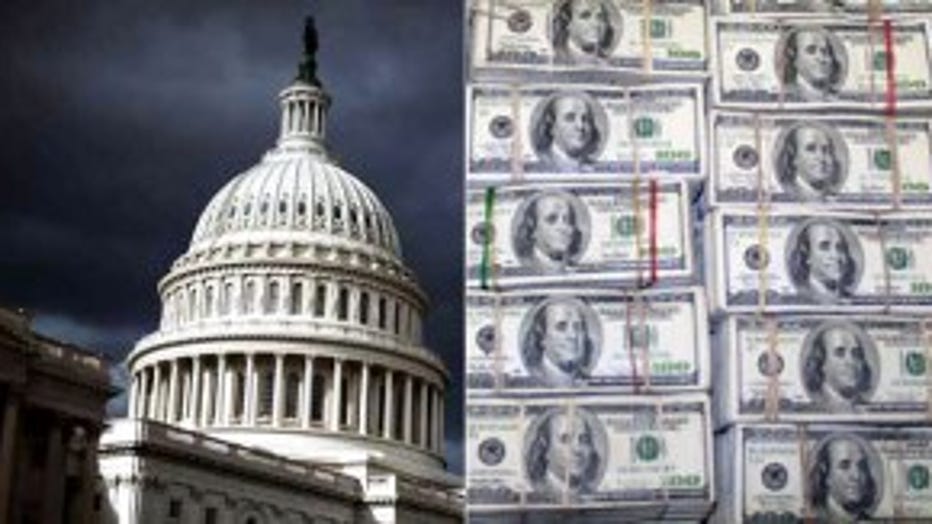Shutdown took $24 billion bite out of economy
NEW YORK (CNNMoney) -- The United States may have dodged an economic catastrophe by raising the debt ceiling and opening the government, but it didn't emerge from the political debacle unscathed.

The 16-day government shutdown took a $24 billion chunk out of the U.S. economy, according to an initial analysis from Standard & Poor's.
As a result, the rating agency projects that the U.S. economy will grow by an annual pace of around 2.4% in the fourth quarter -- as opposed to the roughly 3% growth rate predicted prior to the shutdown.
"Given the size of the economy, it's small. But because it's happening all at once, so quick, so fast, unplanned; it's going to hurt," said Beth Ann Bovino, U.S. chief economist at S&P. "We can absorb it, but it still hurts."
Hundreds of thousands of federal workers were furloughed during the shutdown, but that was just one of the widespread effects of the first shutdown in nearly two decades.
Federal contractors also furloughed thousands of employees. Small businesses reeled from frozen government contracts and stalled business loans. Closed national parks hit the tourism industry, while military families saw child care and other services shuttered.
Consumers, also scared by the debate over raising the debt ceiling, started to cut back.
While federal workers will ultimately receive back pay under the deal, contractors will likely not get their lost wages, Bovino said. And with the deal only guaranteeing government funding through Jan. 15, many federal workers and contractors may continue to hold back on spending into the holiday shopping season.
"That's going to keep people a little more cautious, particularly government workers and certainly contractors," she said "It certainly suggests a ho-hum holiday."
The debt fix is also only temporary, which could continue to fuel economic uncertainty, hurting consumer confidence and slowing hiring, said Mark Zandi, chief economist for Moody's Analytics.
Zandi blamed continued government brinksmanship as a major factor holding back the U.S. economic recovery.
"This is a real corrosion on the economy," Zandi said. "If we have to go down a similar road in the near future, the costs are going to continue to add up."

